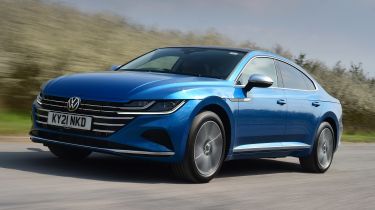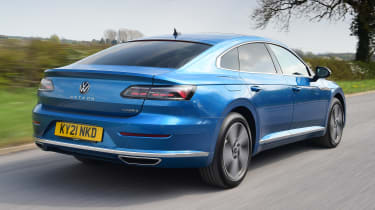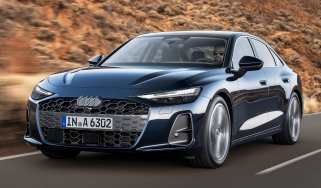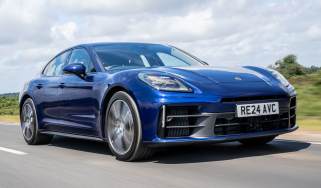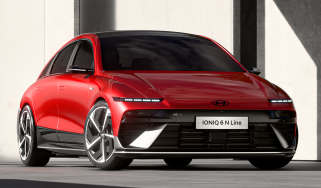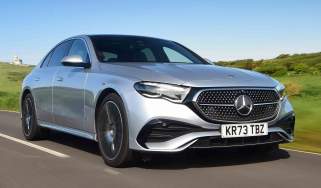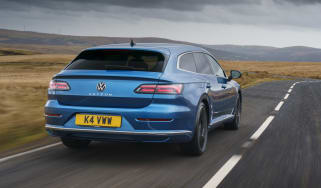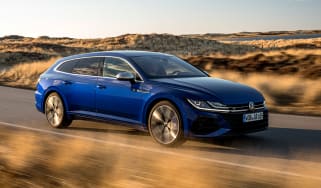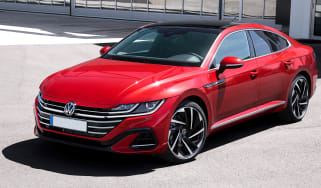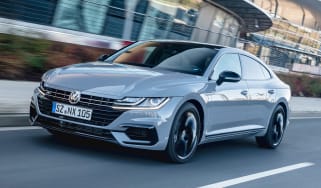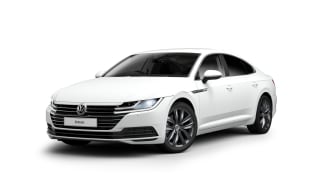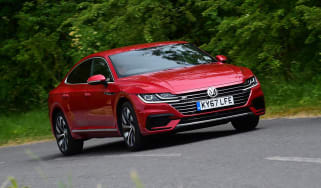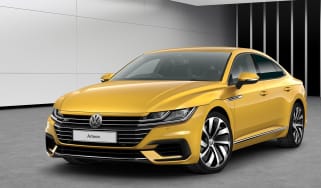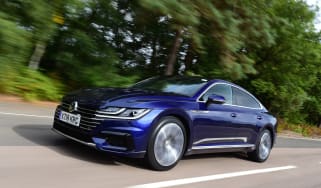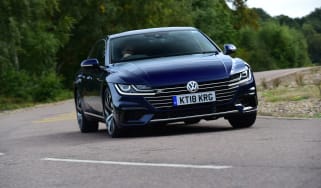Volkswagen Arteon hatchback review
"The Volkswagen Arteon is a polished all-rounder, with the potential to upset premium rivals"
Pros
- Impressive technology
- Spacious interior
- Svelte looks
Cons
- So-so economy
- Not the sharpest drive
- Expensive top models
When the Volkswagen Arteon was launched, the new name helped establish an identity distinct from the Passat CC, which was the car it effectively replaced. It was an important step in giving it a chance against upmarket rivals from Mercedes, BMW and Audi.
In the Arteon’s crosshairs are models such as the BMW 4 Series Gran Coupe and Audi A5 Sportback. You might also look at the Peugeot 508, Skoda Superb and Mazda6.
Those BMW and Audi rivals have a stronger image than the Volkswagen, a brand that’s widely respected but not as desirable by comparison. VW recognises this, which is why it has given the Arteon such an arresting design, complete with an interior crammed with technology and innovation.
Everything about the Arteon's exterior design oozes confidence. We first saw hints of the new model’s nose on a VW concept some years ago, and it features LED daytime running lights flowing from the headlights into a large grille, extending down into the bumper.
The bonnet and wings are similarly striking, and feature bold lines and sharp creases that run along the sides of the car, terminating in muscular-looking wheel arches. Such detail is rare on any Volkswagen and shows just how seriously the carmaker wants the Arteon to stand out and impress buyers. A facelift in 2020 added slightly different tail-lights, plus the option of an illuminated grille.
More reviews
In-depth reviews
In contrast, the interior is quite conservatively styled. ‘If it ain’t broke, don't fix it’ seems to have been VW’s guiding philosophy here and while everything works very well, the Volkswagen Passat connection is clear to see. The screens aren’t mounted on top of the dashboard like they are in the latest Volkswagen Golf but the Arteon does now get the same touch-sensitive panels on the steering wheel.
Traditional gauges are replaced with Volkswagen’s Active Info display, which can be configured to display a wealth of information options – vital given the number of sophisticated driver-assistance systems on offer. Depending on how many boxes you tick on the order form, there’s active cruise control (which can use navigation data to slow the car for corners or speed-limit changes), active lighting (which can illuminate corners before you reach them) and a system to safely bring the car to a halt if you become unwell at the wheel.
One thing not new is the engine line-up. All of the petrols and diesels have been seen in other VW Group cars, but this should improve reliability. The 1.5-litre 148bhp petrol that debuted in the SEAT Leon and Volkswagen Golf is back in the Arteon lineup, alongside a trio of 2.0-litre engines - all of which provide ample power.
Besides the 1.5-litre engine, petrol buyers can also pick a 2.0-litre engine with 187bhp, while the diesel options consist of a 148 or 197bhp 2.0-litre TDI. All engines are available with a seven-speed dual-clutch DSG automatic gearbox and the more powerful diesel can be linked to a 4MOTION four-wheel-drive system on R-Line models.
The facelift also introduced two new engine options. A plug-in hybrid Arteon is available for the first time, which manages up to 39 electric-only miles on a charge and should make the car more appealing to tax-conscious business users. Or, you might prefer the new Arteon R, the performance model that shares its powertrain with the new Golf R and hits 0-62mph in around five seconds. An Arteon Shooting Brake estate model is available for the first time too, with all the aforementioned engines on offer.
Anyone destined to cover high motorway miles will be impressed by the Arteon's ride quality, which manages to feel supple despite its huge alloy wheels and low-profile tyres. And while the BMW 4 Series is undoubtedly a sharper, more fun tool on a winding country road, the Arteon is still an enjoyable drive, with lots of pulling power from the strong engine line-up.
Family buyers will find appeal, too, in the Arteon’s remarkably spacious interior. Admittedly there isn't as much space as there is in a Passat because of the sloping roofline, but there's still generous legroom in the rear and the car is a true five-seater. Boot space is plentiful and the hatchback tailgate is more versatile than the Passat saloon’s smaller opening. Safety is assured by the many levels of collision avoidance and driver-assistance technology available and a five-star result from Euro NCAP. Crash-test findings show the Arteon performs well across the board.
The Arteon isn’t a cheap car, with the more expensive models exceeding £40,000 and prices starting from over £30,000 even if you're buying the entry-level petrol model. The Arteon is an accomplished all-rounder, though, and seems easily capable of luring the Mercedes, Audi and BMW customers that Volkswagen has long sought to capture. It costs more than the Passat, which is a similar car in many ways, but the extra cash buys you much more in terms of style and sophistication.

